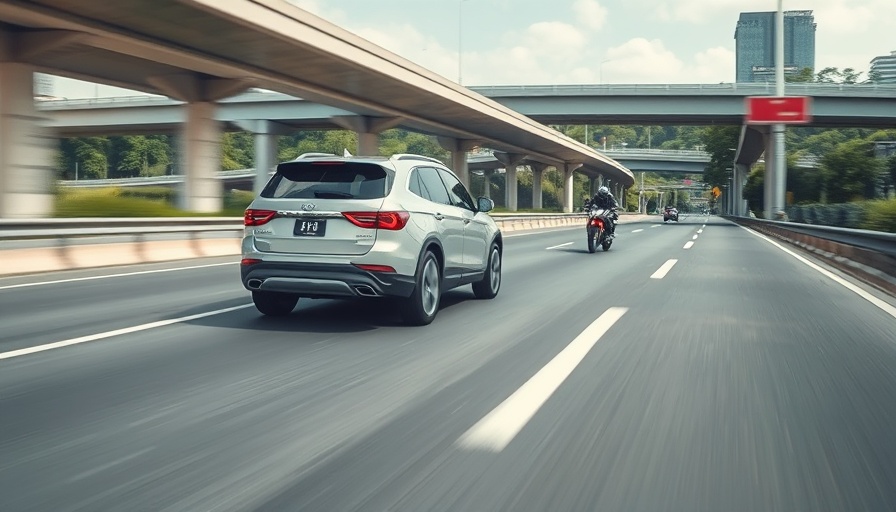
Are Your SUV's Safety Systems Really Protecting Motorcyclists?
In a significant revelation, the Insurance Institute for Highway Safety (IIHS) has unveiled new testing focused on motorcycle detection in SUVs, drawing attention to serious shortcomings that could endanger riders. This initiative marks a pivotal advance in vehicle safety ratings, as understanding how SUVs manage to detect motorcycles can potentially save lives.
Shocking Test Results: A Wake-Up Call for Drivers
Most SUVs tested have demonstrated alarming inadequacies in their crash prevention systems when it comes to motorcycles. The initial analysis revealed that a lone model, the Subaru Forester, achieved a "good" rating, successfully avoiding collisions with motorcycles at speeds up to 37 mph. In contrast, popular models such as the Ford Escape and Chevrolet Equinox received outright “poor” ratings, failing to adequately warn drivers of motorcycles in their trajectory. For example, the Equinox showed minimal speed reduction when faced with an emergency braking scenario, which could have disastrous consequences for motorcyclists sharing the road.
Understanding the Methodology Behind the Testing
The IIHS employed a specialized motorcycle target that mimicked real motorcycle behavior, allowing for an accurate assessment of SUV responses. This innovative approach tested how well vehicles identified motorcycles in different positions on the road, at varying speeds of up to 43 mph. Researchers assessed key components such as forward collision warning and automatic emergency braking, replicating the real-world dynamics that riders encounter regularly.
The Direct Impact on Motorcycle Safety
According to IIHS data, effectively functioning crash prevention technology could avert around 500 rear-end collisions involving motorcyclists each year. Yet, as noted by IIHS Senior Research Scientist David Kidd, the inherent design of motorcycles makes them difficult for radar and camera systems to detect, particularly at high speeds. This poses a critical risk, especially in scenarios where drivers assume their vehicles’ safety systems have them covered and may not be alert enough to avoid collisions.
The Road Ahead for Motorcyclists: Advocating for Change
The incorporation of motorcycle detection testing by the IIHS is a step forward, as it not only informs consumers about the limitations of their vehicles but also incentivizes manufacturers to enhance detection technologies. Groups like the Motorcycle Riders Foundation have lauded this initiative, viewing it as a much-needed push toward improved road safety for all users, particularly vulnerable motorcycle riders.
For motorcycle owners and those in the industry, this new data is more than just numbers—it's a call to action. Whether you're a rider, dealer, or legal expert specializing in motorcycle accidents, understanding these test outcomes is essential for advocating for better systems and regulations. As a motorcycle owner or enthusiast, keeping informed on which vehicles adequately address safety demands can ensure safer experiences on the road.
If you've been affected by road incidents or wish to learn more about how to navigate safety system limitations, contact Full Throttle Law at (833) 702-7433. We’re here to provide assistance tailored for riders' unique challenges and to help protect your rights.
 Add Row
Add Row  Add
Add 

Write A Comment